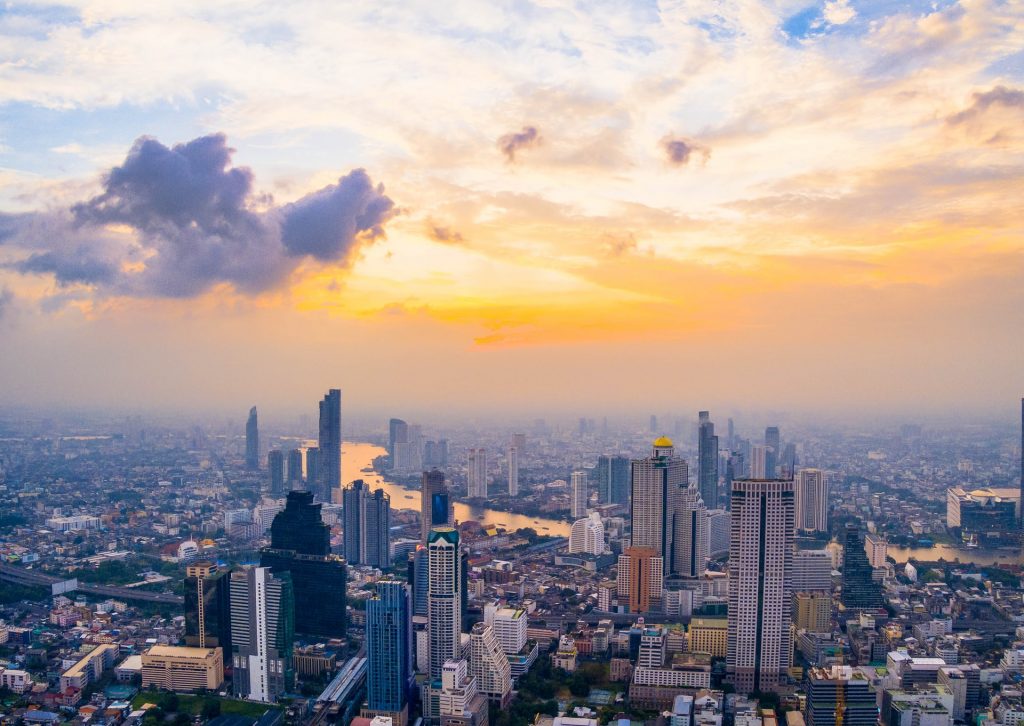Thailand’s Low-Tax “Long Term Resident” Visa Opens Next Month: How Does it Compare to Elite Residence?
The Thai government recently announced a new Long Term Resident Visa (LTR) that grants a 10-year residence permit, a program by which it aims to attract one million people over the next five years.
The category will open in September, and interested parties will be able to apply via the website of Thailand’s Board of Investment (BOI). The LTR – according to initial statements – will be open to high net worth individuals (HNWIs), wealthy retirees, highly skilled workers, and remote workers (digital nomads).
The LTR is the country’s third visa directly aimed at attracting global talent, following the SMART Visa and Visa Work Permit Facilitation programs, which have brought in 1,200 and 50,000 people, respectively.
In its initial announcement, the BOI characterized the LTR as “a program that provides a range of tax and non-tax benefits to enhance the country’s attractiveness as a regional hub for living and doing business for ‘high-potential’ foreigners.”
BOI Deputy Secretary-General Narit Therdsteerasukdi told Nikkei Asia that the program seeks to attract “foreign human resources with high potential and skills” and that he expects most of the applicants will hail from Japan, the US, South Korea, China, and Europe.
Therdsteerasukdi said he expected the program to make significant indirect contributions to the Thai economy through participants’ personal consumption: “We expect the visa holders to spend 1 million baht (28,320 USD) per person,” he said, adding that he anticipated that at least a thousand people would take up the offer “in the short term.”
The LTR will grant holders a 10-year residence permit and a digital work permit that allows them to pursue gainful activity within Thailand. Moreover, visa holders will benefit from a flat 17% tax rate on incomes, roughly half the marginal rate that otherwise applies to high income earners.
How to qualify for Thailand’s Long Term Residence Visa
The LTR visa targets four distinct groups, each subject to particular wealth, investment, or human capital criteria. Common to all applicants, however, is a requirement to have health insurance coverage for expenses of at least US$50,000.
All applicants can add their spouse and dependent children below 20 years of age to their application, but the LTR limits the number of dependents to four for each LTR visa holder.
Group 1 – Wealthy Individuals
The first group mentioned in the BOI’s publication is “wealthy individuals.” To qualify under this category, an applicant must:
- Own assets valued at no less than US$1 million.
- Have a personal income of at least US$80,000 a year.
- Invest at least US$500,000 in Thai government bonds, real estate, or other forms of direct investment in the country.

Group 2 – Wealthy Pensioner
To qualify under the “wealthy pensioner” category, an applicant must be over 50 years old and either have a personal income of at least US$80,000 a year or – if the annual income is under US$80,000 but above US$40,000 – must invest US$250,000 in Thai government bonds, real estate, or other approved asset classes.
Group 3 – Remote Workers (Digital Nomads)
Remote workers can qualify for the LTR if they:
- Have a personal income of at least US$80,000 per year in the past two years.
- Have at least five years of relevant experience within their current field of employment over the past ten years.
- Work for a public company listed on the stock exchange or for a private company with total revenues of at least US$150 million in the past three years.
If a remote worker’s income is lower than US$80,000 but above US$40,000, they can still qualify for the LTR if they have a Master’s Degree, own intellectual property, or if the company for which they work has received Series A funding from recognized institutions.
Group 4 – Highly Skilled Workers
For highly skilled workers to qualify for the LTR, they must:
- Have a personal income of at least US$80,000 a year. Foreigners working for Thai government agencies, however, are exempt from the minimum income requirement.
- Work for a business in a targeted industry, higher education institution, research institution, specialized training institution, or Thai government agency.
- Have five years of relevant experience in the targeted industry in which they are working, unless they hold a Ph.D. or higher in a targeted field or if they work for a Thai government agency.
How does the LTR visa compare to the Thai Elite visa?
For nearly 20 years, Thailand has also offered the highly popular Elite Residence Visa, which offers residence permits of a duration of 5, 10, or 20 years in exchange for flat fees from roughly US$20,000 to US$60,000 (additional fees are required for dependents) or, alternatively, a US$300,000 investment in Thai real estate.
Where the Elite Residence program simply targets foreigners willing to pay a flat fee to reside long-term in Thailand, the LTR widens the scope to also welcome – at no charge – highly qualified professionals in sectors deemed of high value to the economy. This model, which mixes conventional golden visa elements of residence permits in exchange for passive investment with skills-based residence permits, is similar to the UAE’s long-term residence permits program, which also grants visas for 10-year periods.
For groups 2, 3, 4 and (wealthy retirees, digital nomads, and highly skilled workers), the LTR provides a cost-free avenue to a 10-year residency in Thailand not already available to them under the Elite Residence program.
For HNWIs under 50 who are not also digital nomads or highly skilled professionals stationed in Thailand, however, choosing between the Elite Residence and LTR visas will require a more detailed analysis of the costs and benefits.
For instance, obtaining a 10-year visa to Thailand would cost a family of four about US$100,000 in non-refundable fees under the Elite Residence program. That family can now qualify for a 10-year visa under the LTR program in exchange for an investment of US$500,000 in real estate, bonds, or other assets in Thailand. Which choice makes more sense will depend on the applicant’s investment appetite, liquidity level, time preference, and family size.
More from Asia-Pacific


